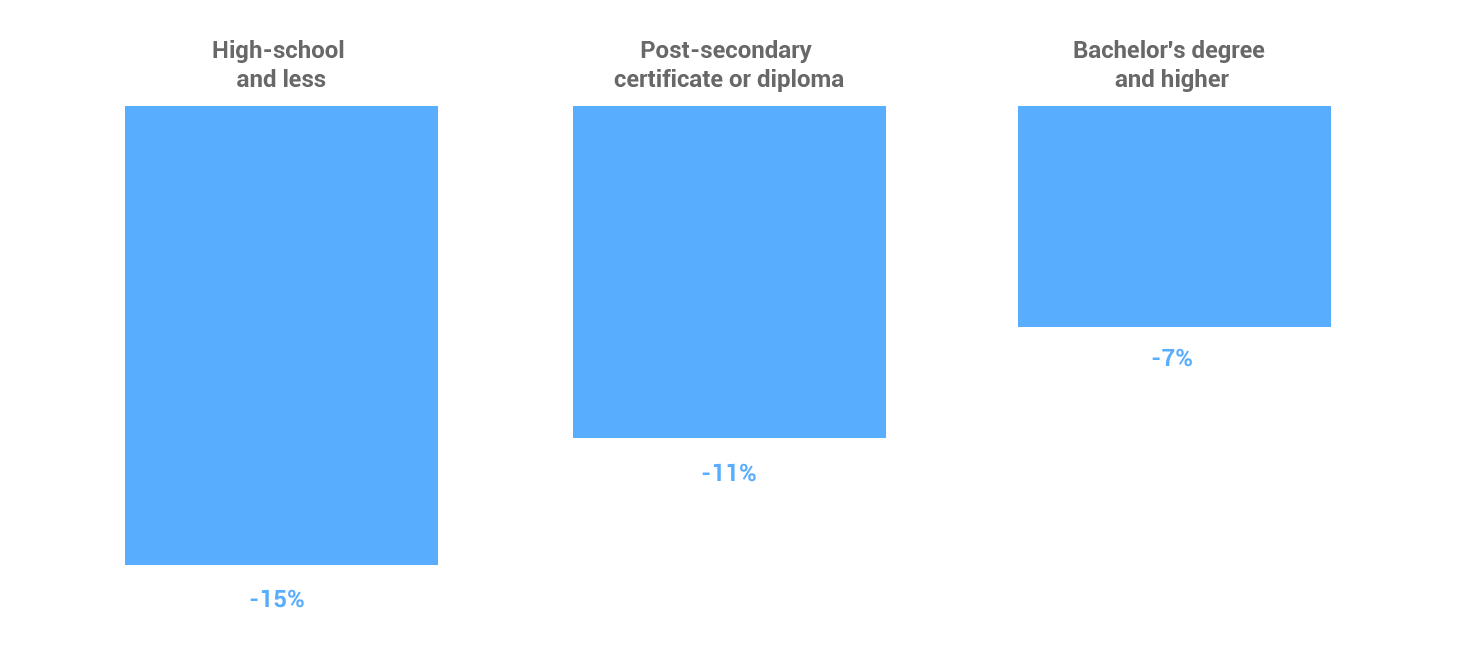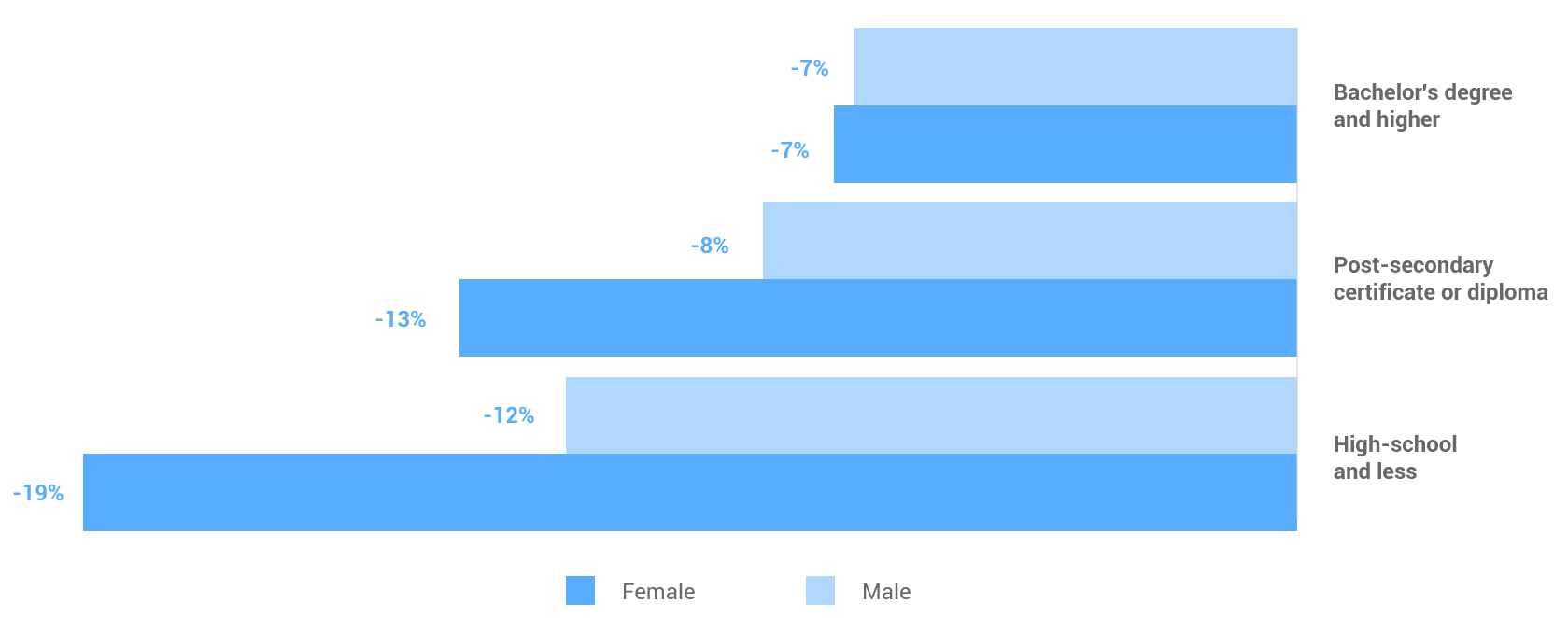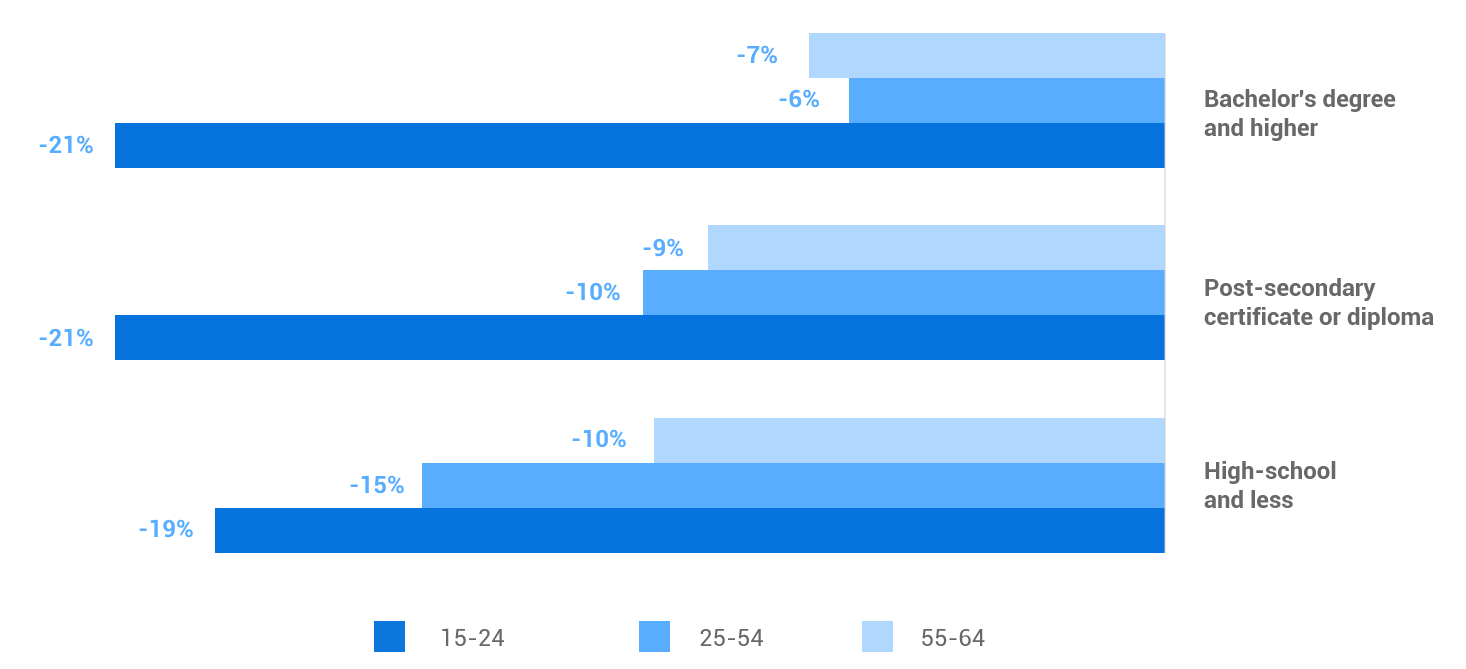
Job Loss Impacts of COVID-19 by Education, Gender and Age
Widespread job losses due to the COVID-19 pandemic have had an outsized impact on workers with lower levels of education. Since these workers tend to earn less on average, economists are concerned about rising inequality around the world. To see how Canadian workers are being affected, we examine the recent employment impacts by educational attainment, gender and age.
Declines greatest for workers with lower education
Using Labour Force Survey (LFS) data released today, we first look at how employment shares (the ratio of employment to the population aged 15 years and older) have changed by education level from February to May 2020. As Figure 1 shows, declines in employment shares are greatest among workers with only secondary education or less (15 percentage point loss, from 83% to 68%) and least among workers with bachelor’s degrees and higher (7 percentage point loss, from 94% to 87%). Since changes in employment shares are generally slow moving, these large declines in just three months are highly irregular and conspicuous.
Figure 1: Employment Share Changes by Education Level (February–May 2020)

Women with low education more affected
At almost every education level, women have experienced greater job losses than men — and more so at lower levels of education (see Figure 2). For workers with high school degrees and less, employment shares for men declined by 12 percentage points over three months (from 83% to 71%). For women, however, employment shares declined 19 percentage points (from 83% to 64%). Likewise, while employment shares among men with post-secondary certificates or diplomas dropped 8 percentage points, those for women dropped 13 points. As the only exception, employment shares dropped relatively the same for both men and women with Bachelor's degrees or higher (about 7 percentage points each).
Figure 2: Employment Share Changes by Education Level and Gender (February–May 2020)

Youth employment shows the greatest drop
As Figure 3 shows, declines to employment shares also differ by age. At every education level, youth workers (aged 15–24) have experienced a greater drop in employment share compared to older workers over three months. Female youth experienced the largest drop — 25 points (not shown).
In addition, workers with lower education in the other two age groups (25–54 and 55–64) both lost relatively more jobs compared to their counterparts with higher education. These data suggest that for youth, education does not insulate against job loss as well as it does for older workers.
Figure 3: Employment Share Changes by Education Level and Age (February–May 2020)

Today’s LFS data confirm that low-educated workers have suffered greater relative employment declines, and that women and younger workers tend to fare worse. Moreover, while higher education is typically associated with greater protection against economic downturns, this has not been the case for younger Canadians. Youth have experienced steep employment declines regardless of their education level.
We know from studies of previous pandemics that implementing measures to protect workers from the long-term consequences of lost employment is important in preventing rising inequality. LMIC will continue to help Canadians address the needs of vulnerable populations in the current and post-COVID world of work by improving access to reliable, updated labour market information.

Behnoush Amery is a Senior Economist with LMIC. Her work currently focuses on labour market information research related to the future of work, the relationship between education and labour market outcomes, as well as the estimation of granular labour data.
behnoush.amery@lmic-cimt.ca

anthony.mantione@lmic-cimt.ca